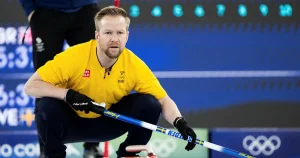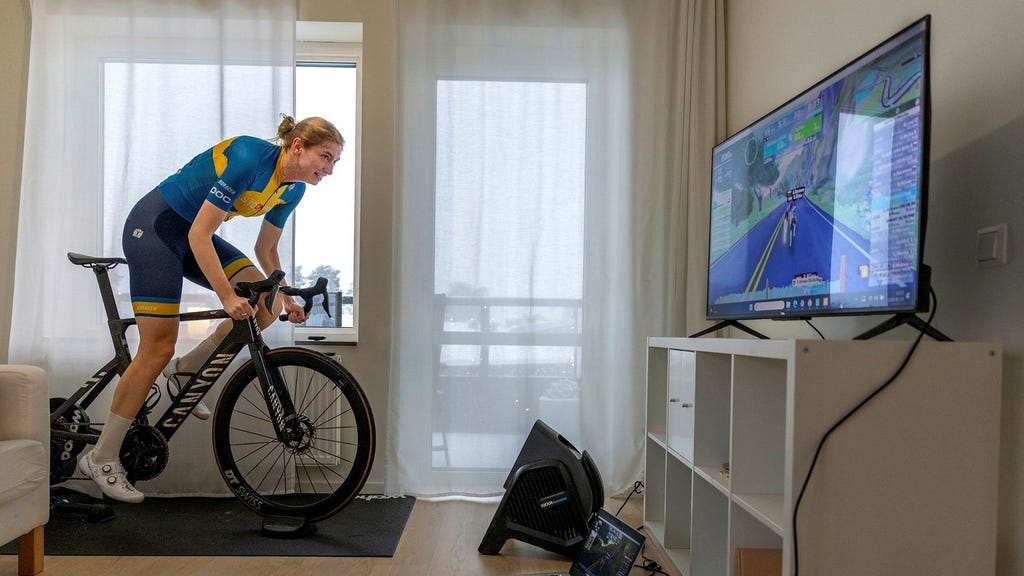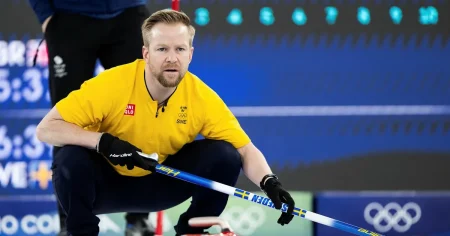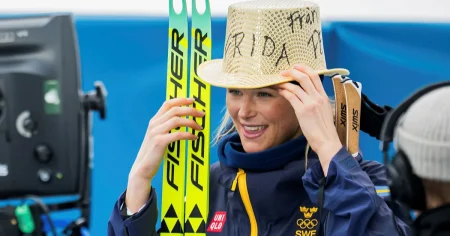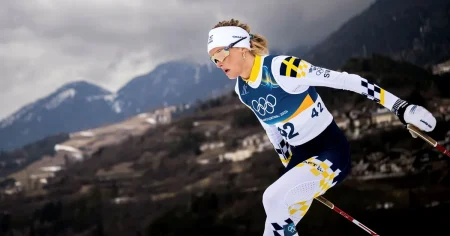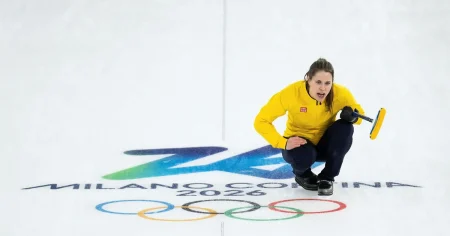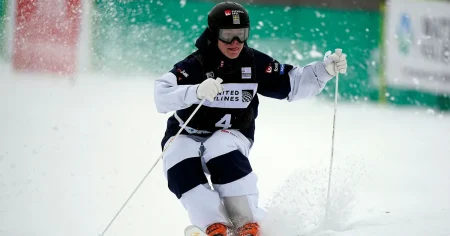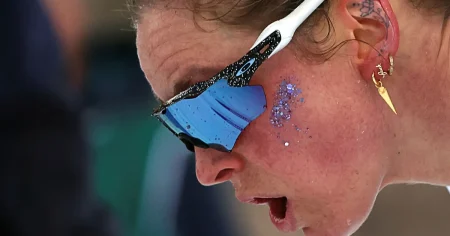Mika Söderström, a 25-year-old doctoral student at KTH Royal Institute of Technology in Stockholm, leads a double life. By day, she delves into the complexities of electromagnetism. By night, she transforms into a digital athlete, navigating the vibrant, fantastical world of Watopia, a virtual cycling platform populated by thousands of avatars from across the globe. This isn’t just a game; it’s e-cycling, a rapidly growing e-sport where competitors, perched atop stationary bikes in their homes, race and train in a digital realm. Mika, with her custom-designed avatar, is not just a participant; she’s the reigning Swedish champion, a testament to her dedication and talent.
E-cycling transcends geographical boundaries, connecting athletes from diverse corners of the world. Watopia, along with other platforms like Whoosh, offers a dynamic environment where cyclists can choose from fantastical landscapes featuring volcanoes and dinosaurs or opt for virtual recreations of real-world routes like the Champs-Élysées. The sophisticated technology translates the cyclist’s physical effort into their avatar’s speed and adjusts resistance based on the virtual terrain, mimicking the feel of outdoor cycling. Mika, initially introduced to the platform by her father, found the accessibility and convenience of training from home incredibly appealing.
Mika’s journey to e-cycling champion wasn’t a straightforward one. As a teenager, she was a promising track and field athlete, winning multiple youth national championships and even placing fifth in the European Youth Championships. However, recurring stress fractures in both feet derailed her athletic aspirations. The injuries not only sidelined her physically but also took a toll on her mental health, leading to performance anxiety and a struggle to separate her identity from her athletic pursuits. With the support of a sports psychologist, Mika learned to confront her mental health challenges and, despite undergoing surgery and extensive rehabilitation, ultimately chose to step away from track and field, having lost the joy she once found in the sport.
Cycling, initially viewed as a tedious pastime during her injury recovery, unexpectedly became her new passion. Her father, an e-cyclist himself, introduced her to Zwift, and the virtual world immediately captivated her. The ease of hopping onto the stationary bike in her living room and immersing herself in the vibrant digital world of Watopia reignited her competitive spirit. The combination of accessibility and the unique challenges of e-cycling provided a fresh start and a new avenue for athletic pursuit.
Mika’s rise in e-cycling has been meteoric. After winning the Swedish National Championship in e-cycling, an event held in Luleå where competitors raced side-by-side on a stage while connected to the same virtual race, she made her virtual World Championship debut in 2023, finishing an impressive sixth. She repeated this feat the following year at the World Championship held physically in Abu Dhabi, United Arab Emirates. These accomplishments have propelled her to the forefront of the e-cycling world, bringing with them the pressure to perform and the potential to re-trigger her past struggles with performance anxiety.
Despite the growing recognition and acceptance of e-cycling as a legitimate sporting discipline, challenges remain, particularly concerning fairness and integrity. The reliance on self-reported height and weight, crucial parameters affecting in-game performance, opens the door to potential cheating. While professional competitions implement stricter controls, including weigh-ins and camera monitoring, the potential for manipulation underscores the need for robust anti-cheating measures. For Mika, the balance between dedication and maintaining a healthy perspective is crucial. She views e-cycling as a serious commitment, a ”professional” pursuit, yet one that must coexist with her academic endeavors and her ongoing journey of managing performance anxiety. Her story is not just about athletic achievement; it’s a testament to resilience, the power of finding new passions, and the evolving landscape of sports in the digital age.




